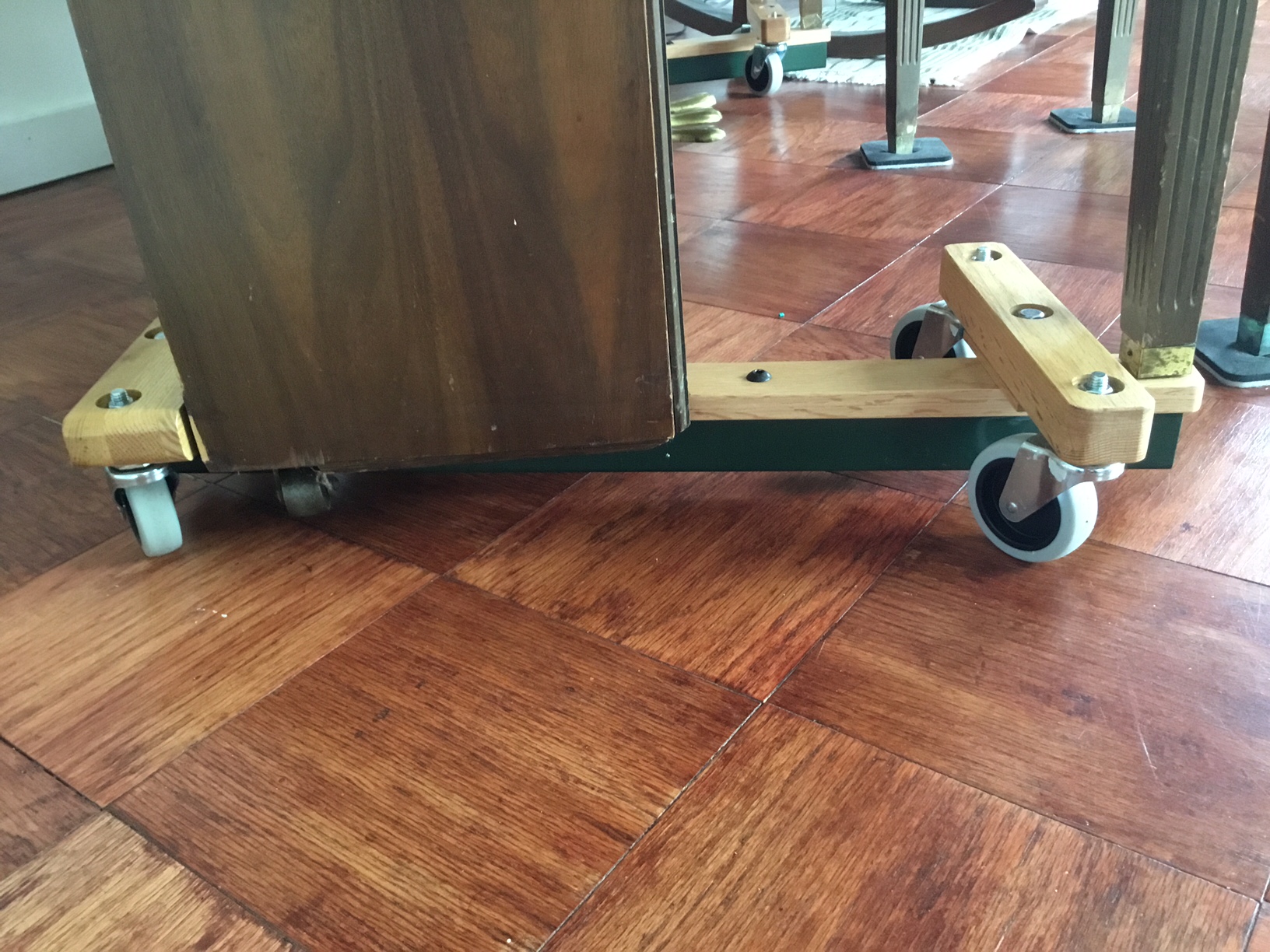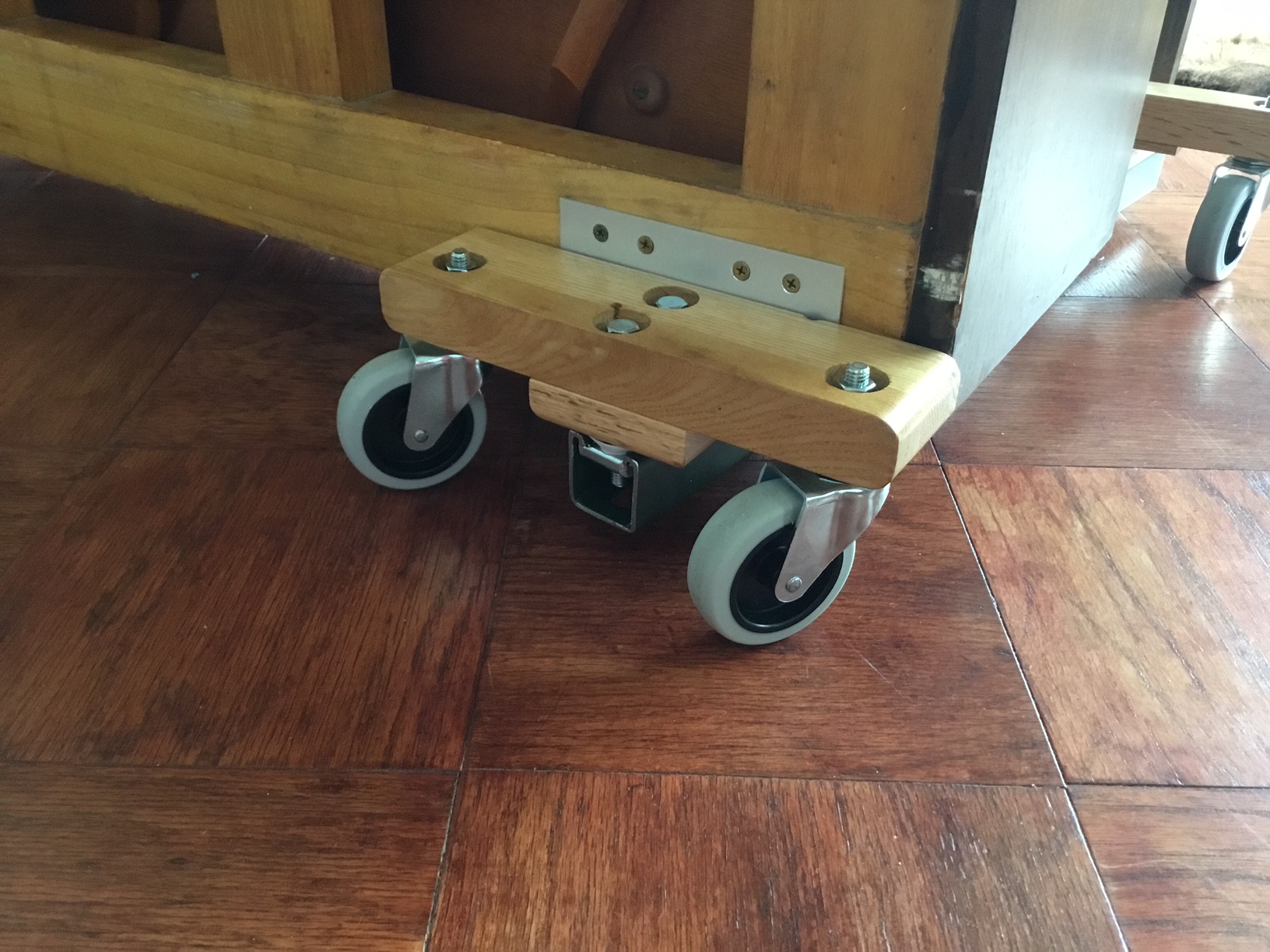So yeah, free pianos. Easy to find, not so easy to move. Here in the Chicago suburbs it cost $275 to have the current piano moved from one house a half hour away to my house, 2-3 steps at each end. So that's the first expense, though if you've got access to a van, a ramp, and a few friends you may well be able to do it much cheaper. (that's how the Wurlitzer got here). Check with rental places for a "piano dolly" or "piano hand trucks".
The current piano, the Cable, was another piano donated to the congregation but so far it's just been fostered by members and moved when somebody wanted it out of their house. This one is actually decent enough to be used, especially after the work that I've done - nothing amazing, and would have been done a lot quicker by a professional, but it's done. The piano will normally be stored in a closet and then rolled out on Sunday mornings (rented meeting space), so it needs better wheels. Factory piano wheels, if you were wondering, are made of metal and tend to be hard on wooden floors. They're made that way because 99% of all pianos sit in the space spot for decades, and rubber wheels would collapse over that time. In this case the piano needs much softer wheels with a larger footprint to avoid damaging the wood floors, so I built and installed dollies:

- Upright piano DIY dolly, side view
- IMG_0400.JPG (683.86 KiB) Viewed 101 times

- Upright piano DIY dolly, rear view
- IMG_0401.JPG (611.95 KiB) Viewed 101 times
Commercial dollies for installation go for a few hundred dollars, and for some reason the ones for this kind of piano (with the front legs) are more like $800 plus shipping. I spent about $130 on some strut channel (aka Unistrut), 105-pound rated wheels, and hardware. The wood (oak) mostly came from the previous piano. This piano now rolls around like butter on a hot skillet, and probably I'll have to make some wedges to keep it from rolling around while being played. This would also be nice in a studio setting, so the piano can be easily put in different locations and stored out of the way when needed. The only downside is that the keyboard and pedals are now a couple inches higher than normal, which could be fixed by making a removable platform to fit under the pedals and to raise the piano bench (or just buy an adjustable bench).
